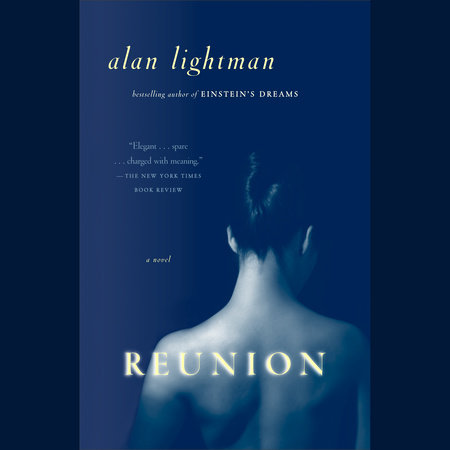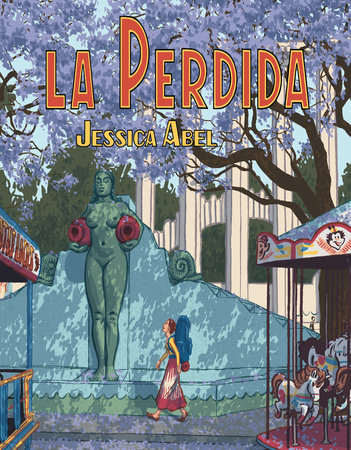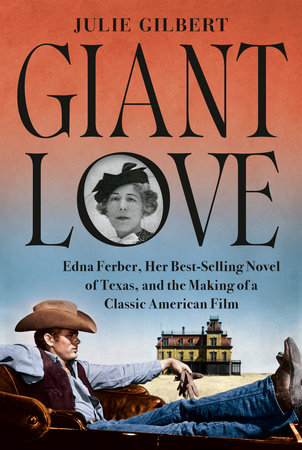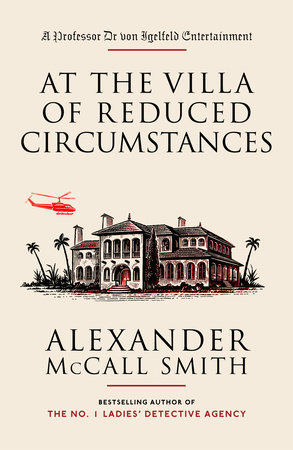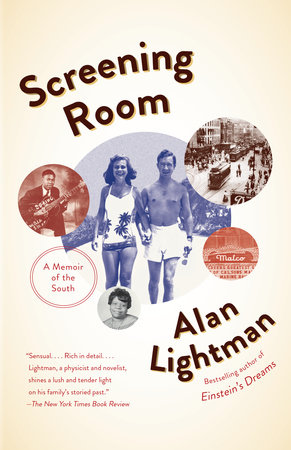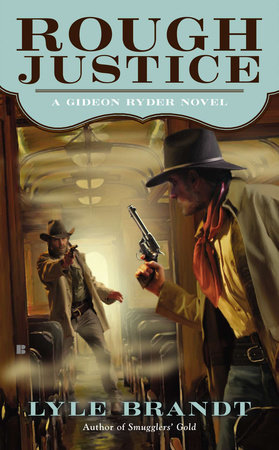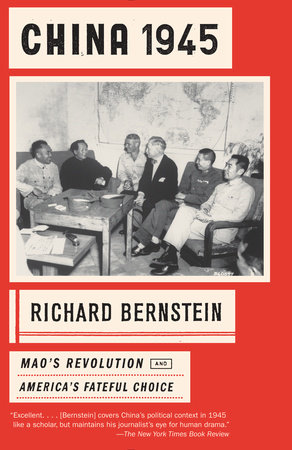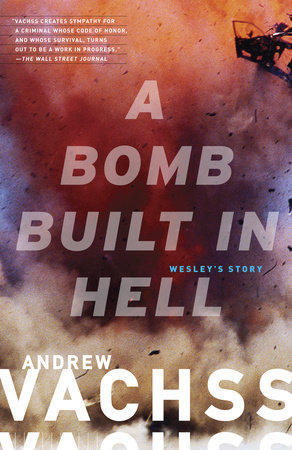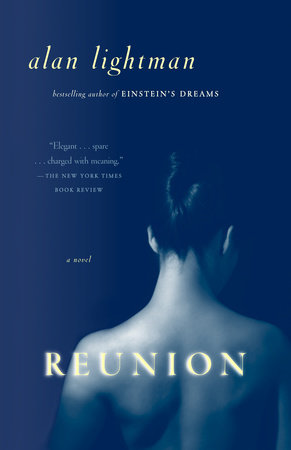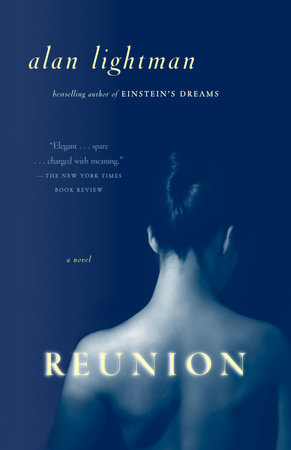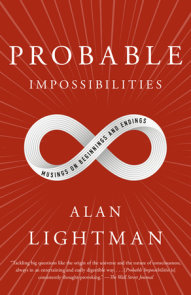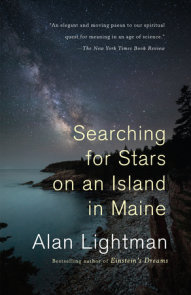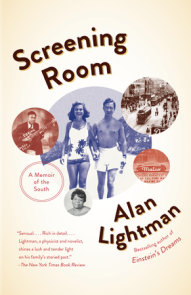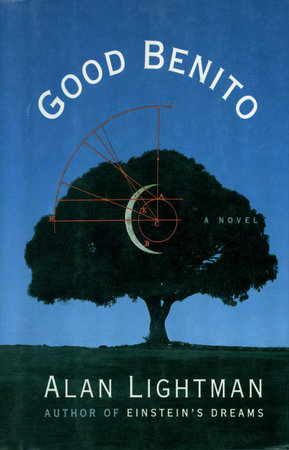Author Q&A
A conversation with Alan Lightman
Q: In your new novel, Reunion, your central character Charles journeys from the present to the past to revisit himself as a young college student. Can you tell us something about Charles and how his journey begins?
A: At the opening of the novel, Charles is in his early fifties, a literature professor at a small, second-rate college somewhere in the Northeast. As a young man, he had been a promising poet, but he has not lived up to that promise. He now lives in a big, rambling house, left to him by his successful wife, whom he divorced ten years ago. Since then, Charles has had a string of empty relationships. For reasons that he doesn’t understand, he has decided to attend his thirtieth year college reunion. And there, at the reunion, he becomes a witness to his senior year in college, a year in which he was involved in a passionate but ultimately devastating love affair with a ballet dancer named Juliana. I won’t reveal how this witnessing the past comes about, but once it begins, Charles is drawn to the spectacle like a moth to a flame, wishing that he could tear himself away but finding that he is unable to do so.
Q: An idealist and romantic in his 20s, Charles has developed into a dispassionate skeptic. What do you think he expected of himself?
A: I believe that Charles, as a twenty-two-year old young man, expected what many of us expect in our youth. He saw the future stretching in front of him to infinity, shimmering with unlimited opportunities and hopes. He saw himself as immortal. More than that, he was a talented poet, all of his teachers told him so, he seethed with his talent, and he had aspirations of being a great writer. And he hoped to be a man loved by women.
Q: Your title, Reunion, represents several different kinds of reunions: the thirtieth-year college reunion that Charles attends, a reunion between Charles and Juliana, and a reunion between Charles and his younger self at age twenty two. Can you discuss this idea?
A: Of course, I like the triple meaning of reunion here, but for me the most important reunion is between the fifty-two-year-old Charles and his twenty-two-year-old self. Aging is one of the most powerful, beautiful, and horrifying experiences of life. In what ways are we the same person, and yet a different person, as ourselves ten years ago, twenty years ago, thirty years ago? I have often wondered what it would be like to meet myself of twenty or thirty years ago. What would I say to myself? What would I want to know about my younger self that I have now forgotten, or misremembered, or distorted in the vast hallways of time? What joys, what regrets would I want to express to my younger self?
Q: Tell us a little about Juliana.
A: Juliana is a private person who tells us little about her past. Evidently, she had an abusive father who abandoned the family and an alcoholic mother. At age 12 she ran away from home to live in New York City with her aunt, a former ballet dancer. Juliana becomes a dancer herself. Dancing is her life. Her ambition is to dance with Balanchine, to be as good as Suzanne Farrell. Like many dancers, she is obsessively compulsive about her body and her weight. She lives in a world of certainty, ballet, ballet, ballet. Yet, she still needs intimate relationships with men, as if the rigid formality of ballet doesn’t allow enough freedom to her body. She makes love to Charles in the tiny ballerinas’ dressing room, late at night.
Q: There is a lot about ballet in the novel. How did you research this?
A: I have always been fascinated by ballet, as an art form centered on the body. A friend of mine, a former dancer himself and now teacher of dance, shepherded me around New York to visit a number of the ballet studios still in existence from the1960s, when most of the novel takes place. I attended some classes and rehearsals. My friend also got me into a remarkable class of the Royal Ballet, from London, when they were performing in Boston. Beyond these wonderful experiences, I read some of the autobiographies of famous ballerinas and watched some documentaries about ballet.
Q: Much of Reunion takes place during the social and political chaos of the late 1960s. How did these events impact your characters?
A: The young Charles is undergoing a soul-searching period of his life brought on by the usual confusions of a twenty-two-year old and the overpowering love affair with Juliana. The chaos of the Vietnam War and all of the questions of the 1960s only add to his confusion. At times, he thinks about his future as a great poet. At other times, he thinks that he will be drafted and killed in Vietnam, like some of his classmates, and that the future extends only for the next day, that the only important moment is the present. As for so many young men of this era, Charles has ambivalent feelings about the War and many of the social issues of the day. On the one hand, he believes that the War is wrong, that various social inequalities are wrong. On the other hand, he is not sure that he should jeopardize his future by being an activist, burning his draft card, setting fire to buildings, joining the Black Panthers, and so on. Juliana, on the other hand, seems to float above the social and political issues of the day. She lives in a world of certainy. Ballet is her rock, her beauty, her purity, and her torment.
Q: Haunted by the turns his life has taken, stunned as he witnesses a replay of his senior year in college, the older Charles remembers various conflicting versions of his love affair with Juliana and is shocked to realize that his own recollections may be more self-serving than accurate after all these years. Is this revelation a commentary on how we view ourselves versus how the world views us?
A: Memory is a clay-like substance. I believe that we distort, bend, and reshape personal memory to fit our self image, to manufacture our self identity. The most mysterious aspect of existence, in my opinion, is consciousness, self awareness. And that consciousness and "I-ness" is, in turn, determined in part by memory, memory of events in the past, relationships in the past, actions and decisions in the past, who we were in the past. Because memory is malleable, all of those past decisions, actions, and impulses of the heart are also malleable, they twist and shimmer in a half light, subject to interpretation and reconstruction, so that it is impossible to say what really happened. Reality itself disappears in a haze of uncertainty and human frailty.
Q: Your previous fiction clearly melds your scientific background into your fiction. Reunion is a much more romantic book, and the relationship between Charles and Juliana is one of great passion. Would you describe yourself as a romantic?
A: Yes, I would describe myself as a romantic. From a young age, I have struggled with a kind of split personality: on one side intuitive, artistic, romantic; on the other side rational, scientific, dispassionate. In high school, I wrote poetry and I also built rockets. I constantly feel these two sides warring with each other, in my professional work, in my friendships, in love relationships. Even in my fiction, I find this tension. I think that Reunion comes far closer to my romantic and passionate side than any of my previous books.
